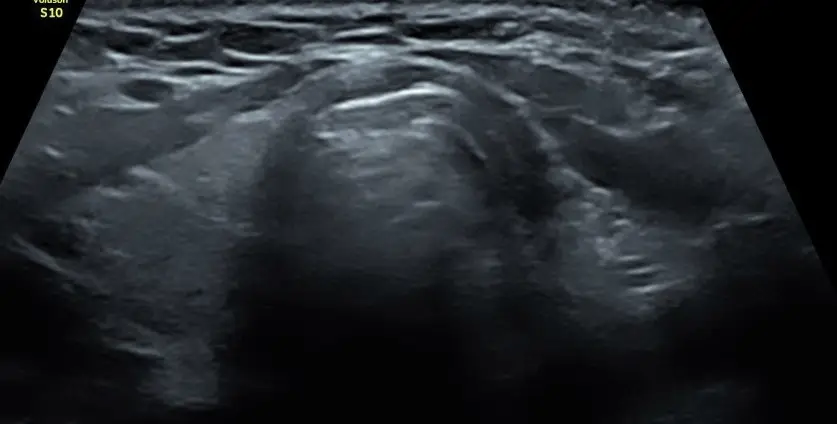
Sophia McCarthy
Operations Manager
What is the thyroid?
Your Thyroid is a small gland located just below the centre of your throat, at the base of the neck. It is often described as a ‘butterfly-shaped’ gland and is part of the body’s endocrine system; a network of glands and organs that use hormones to regulate the body.
The main purpose of your thyroid gland is to manufacture and secrete hormones that control the speed of your body’s metabolism (The process of converting food and drink into energy). The thyroid hormone, thyroxine (T4) is released by the thyroid into your blood, where it is then converted by blood cells into triiodothyronine (T3). These hormones also influence other functions in your body, such as:
- Slowing down or speeding up heart rate.
- Body temperature.
- The speed at which food passes through the digestive tract.
- Brain development.
- Muscle contraction.
- The rate at which your body replaces dying cells (a normal process for hair and skin maintenance).
What are some common thyroid issues?
Thyroid issues begin to appear when your thyroid either releases too much of these hormones (hyperthyroidism) or too little (hypothyroidism).
Hyperthyroidism
An overactive thyroid gland can cause certain bodily functions to unnecessarily speed up, resulting in symptoms such as:
- Feeling restless, irritable or anxious.
- Quickening heart rate.
- Sweating more than usual.
- Shakiness.
- Sleep issues.
- Brittle or thinning hair, skin and nails.
- Weakness in muscles.
- Unusual weight loss.
- Increased sense of appetite.
- More frequent bowel movements.
- Bulging eye (in Graves’ disease).
Hyperthyroidism can cause a condition called Grave’s Disease, where the immune system mistakenly attacks the thyroid, causing it to become overactive.
Hypothyroidism
When your thyroid glands are not producing enough hormones, this is called Hypothyroidism, and can present with the following symptoms:
- Feeling abnormally tired.
- Dry hair and skin.
- More sensitive to cold.
- Issues with memory.
- Constipation.
- Feeling depressed.
- Unusual weight gain.
- Joint pain and muscle weakness.
- Slower heart rate.
- Irregular menstruation or menstruation that is heavier than usual.
- Fertility issues.
Hypothyroidism can result in a condition called Hashimoto’s Disease (otherwise known as chronic lymphocytic thyroiditis). Like Grave’s Disease, Hashimoto’s Disease is an autoimmune disorder affecting the thyroid. The difference between the two diseases are the antibodies used by the immune system to attack the thyroid glands.
Goitre
Goitre is an enlargement of the thyroid gland that is non-cancerous and often caused by an iodine deficiency in the diet. It can also be caused by Grave’s disease, hypothyroidism, thyroiditis or gland tumors. Common symptoms include: swelling or tightness in the neck, difficulty swallowing or breathing, hoarseness or coughing and wheezing.
Thyroid Nodules
Thyroid nodules are solid or fluid-filled growths that develop on the neck on your thyroid gland. They usually do not present with any immediate symptoms until they grow larger in size, eventually causing discomfort and pain. They are often benign, but can be cancerous in a small number of cases.
Thyroid and ultrasound
So what can be seen by ultrasound technology when it comes to the Thyroid? Ultrasound can visualise:
- The isthmus of the thyroid
- The right and left thyroid lobes
Doctors will therefore often refer patients to us to query the following thyroid issues:
- Query goitre
- Query a nodule
- Query enlarged lymph nodes
- Query thyroglossal duct cyst
Our Thyroid ultrasound usually only takes between 15-20 minutes, but we allow for 30 minutes in our clinics to make sure we can check everything in detail and get accurate measurements. The report will then be sent to a consultant radiologist who will write up the official report and send it to your referring doctor within 2 – 3 business days.
If you would like to have your thyroid scanned, we first require a letter for referral from your GP. This can be sent via email or by Healthlink.
If you would like more information on anything covered in this post, you can get in touch via info@theultrasoundsuite.ie or send us a message on our Facebook page and we will get back to you as soon as possible. Our website www.theultrasoundsuite.ie also provides a wealth of information on our various policies and procedures.
